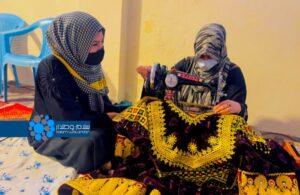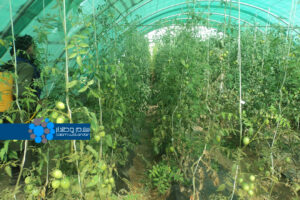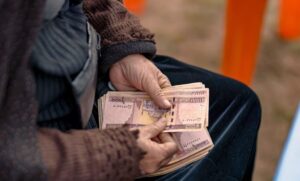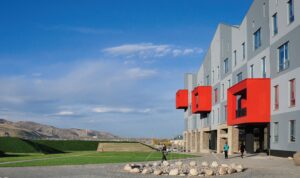ISLAMABAD (SW) – The plight of single Afghan refugee mothers in Pakistan is dire, with many facing the harsh social and economic realities and often enduring nights of hunger.
Fleeing Afghanistan due to security challenges and various restrictions, hundreds of vulnerable women in different parts of Pakistan grapple with the hardships of life and a pervasive sense of monotony.
30-year-old Maryam Baloch, who has been living in Islamabad, the capital of Pakistan for two years, says that her husband passed away six years ago due to kidney failure and now she is the guardian of her two teenage sons.
Baloch, who worked with a foreign company in Afghanistan, was forced to migrate to Pakistan in the hope of a better future due to the imposed restrictions by Islamic Emirate on women’s work in Afghanistan. She adds that she now works as a maid in a house and her daily income is around 300 rupees, which does not meet her daily needs.
“With this income, I cannot even buy five breads for my children. My children are suffering from malnutrition. I cannot provide them with proper food.”
Baloch emphasized that making a living in a foreign country is challenging, and according to her, she is harassed on the way to work, which has caused her mental breakdown.
“The young women without a guardian who go to work are being humiliated. We cannot sleep and we do not have peace. I cannot take care of my children properly. Here in Pakistan, everyone is suffering from mental breakdown.”
Psychologists believe that the inappropriate environment created for Afghan single mothers here is a serious threat of the mental issues and future of their children and them.
Hekmatullah Sediqi, a psychologist, says that women face psychological problems more than men. “When a person is psychologically harmed, physical harm is also involved. The women with an uncertain fate, face such situation,” said Sediqi.
Khaleda, another Afghan single mother residing in Pakistan with her one-year-old son, has also suffered the same fate. Like other Afghan women, she went to Pakistan due to restrictions and security threats in Afghanistan, according to her.
Khaleda, residing illegally in Pakistan, says that most of the time, she encounters with demands for money from the local police under various pretexts. Despite reaching out to international institutions, including the United Nations High Commissioner for Refugees (UNHCR) in Pakistan, for support, Khaleda laments that her pleas have gone unanswered. “They don not treat me properly, they just say be patient.”
Qaisar Afridi, the spokesperson for the UNHCR in Pakistan, in response to these claims, says that this organization has provided cash assistance to Afghan women in Pakistan, and according to him, a number of other women whose lives endangered in Afghanistan, they have been introduced to countries that grant asylum.
“Women who are vulnerable or poor, we identify them and relocate them to third countries. In addition, we also have a cash distribution program. For those who are poor, we have a special mechanism to help them,” said Afridi.
Officials of UNHCR in Pakistan say that after the Islamic Emirate came to power in Afghanistan in August 2021, some 600,000 Afghans have migrated to Pakistan, of which only 450,000 have applied for registration.






